Why Stay on a Farm?
The importance of farm stays – for you and the farm.
My husband and I bought our Oregon farm 14 years ago. We were Phoenix urbanites looking for water and a change of pace. That’s about as far as we delved into what exactly being a farmer entailed. Our farm came with a mixture of smaller livestock, some rusty equipment, a century-old apple orchard, and a peacock. It seemed like an idyllic life choice with beautiful scenery and the requisite historic barn. We thought, “How hard could farming be?”
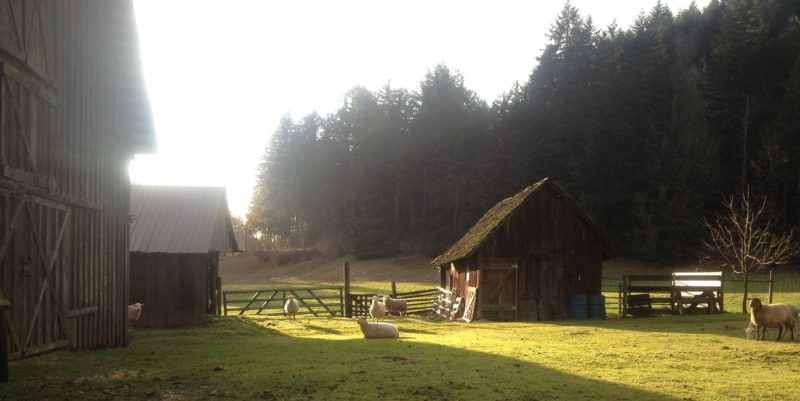
In hindsight, a business plan might have squelched that naiveté, but idealizing farming isn’t new nor are we the only ones to have gone down that path, even marketing the myth (Does Pepperidge Farm really exist?) Regardless, this is actually a great reason to visit a farm. After all, this is where the food in your fridge starts out – be it livestock or produce, even something simple like eggs (Fair warning: egg-laying chickens are well known as a “gateway livestock”!) Farming is physically demanding; it requires skill and education, and even a bit of luck. It’s a risky business. It’s also a 7-day-a-week job that some will joke is a lifestyle, not a living. But it also brings clarity to pricing at your local farmers’ market. Exactly how much time and labor does it take on the part of the farmer to get those eggs to your fridge?
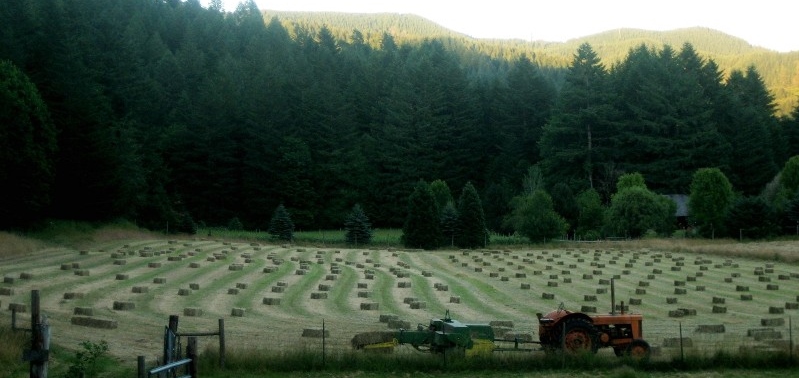
Most small farms ($100K or less in sales) require off-farm jobs to support the family. We were no different. Which leads me to the creative thinking required to make a living on a farm, also known as ‘value-added’ (thanks USDA). That would be the jam, goat cheese, wool, or soap you’ll find on Etsy, at the farmers’ market, or at the roadside farm stand. For us, it was the addition of a ‘farm stay’ to our operations. Farm stays – overnight lodging provided on the farm for a fee – are as varied as the farms offering them. You might find yourself in a tent on the back-40, a cabin, a yurt, even a room in the farm house; and, often your stay includes a farm-fresh breakfast and a rooster alarm clock.
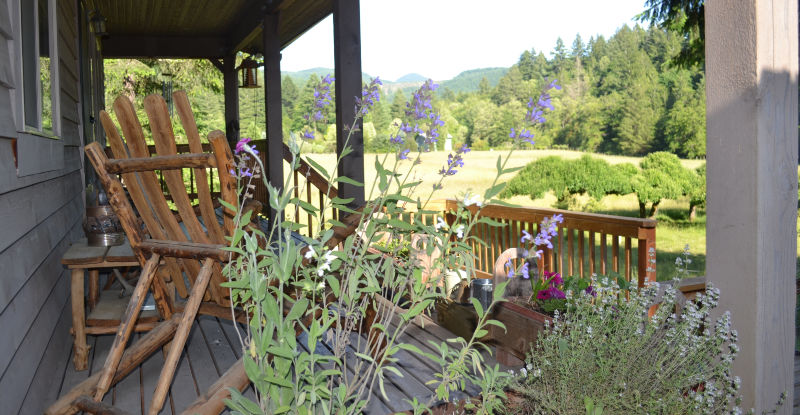
Yup, we farmers are looking at diversification strategies (wow, we sounds like hedge fund managers) that include the hospitality business and inviting strangers to experience our lifestyle. It helps pay for tractor maintenance, but it also allows us to share our vistas as well as our challenges with urbanites and travelers, often disconnected from the natural world in ways that would have our grandparents shaking their collective heads. We know. We were those urbanites – until we weren’t.
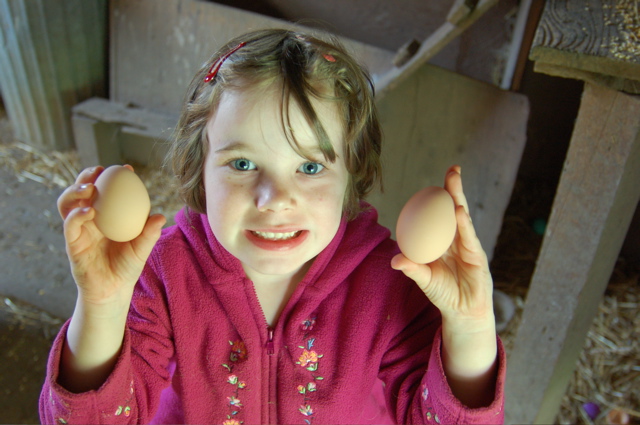
And, it’s not dirty and boring the way you might think. Okay, well the lodging isn’t dirty, although helping around the farm might involve some dirt. Boring never factors in because… farms aren’t boring. Maybe you’ll help collect eggs, brush the donkey, even hold a baby lamb. Maybe you’ll sit on the farm house porch and read a good book, drink the local brew, unwind and unplug. You’ll be our guest for a weekend or a week and you never had to buy the farm!
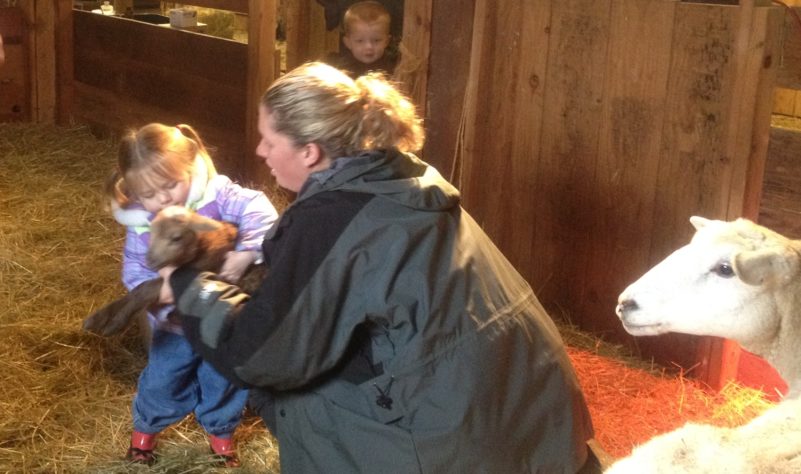
This is why you would want to stay on a farm. It’s a bridge to the country. It’s a boon to the farm (it saved ours). It’s fun and unexpected, and your friends will think you are crazy, until you return home with tales of feeding a baby goat, and then they will want to go too. You’ll be protecting small-farm America that at one point built this country. You’re a patriot! Okay, bit of a stretch, but at least you have found a unique, relaxing vacation spot… and are now contemplating chickens for the back yard!
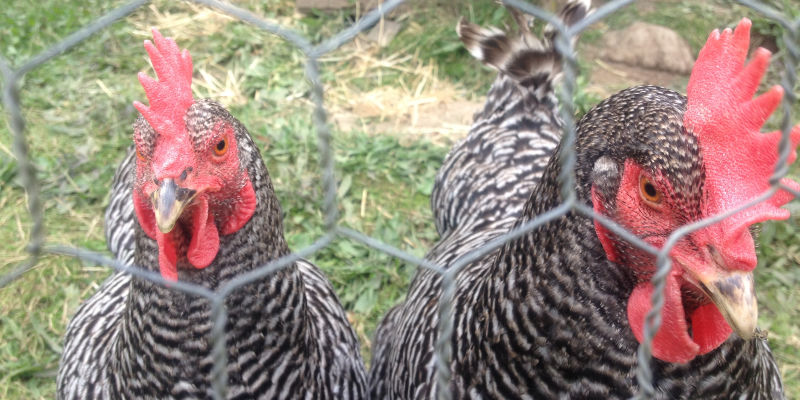

Lake Country Land School Blog
Tuesday, march 15, 2011, farm stay essay, no comments:, post a comment.
Agritourism Is the Concept of Vacationing on a Farm—Try It Out at These 10 Pastoral Properties
The terms "agritourism" and "farm stay" are often used interchangeably. Whatever vernacular you assign to the purpose-built experience, though, know that this booming part of the ecotourism sector delivers something from which so many of us could benefit: more time outside, and the opportunity to experience an agrarian way of life. And it appears to be here to say: According to market research , the nearly $6 billion market size of agritourism, as of 2021, is predicted to grow at a rate of 11.4 percent through 2030.
“Agritourism is becoming so in demand because of our collective desire to return to a slower, more natural way of life. It ultimately comes down to our well-being." —Peyton Cypress, Farm Manager, Southall
“Agritourism is becoming so in demand because of our collective desire to return to a slower, more natural way of life. It ultimately comes down to our well-being. What environment is going to make us feel our best? When people start asking themselves these types of questions, many arrive at the idea of a farm with fresh air and beautiful scenery,” says Peyton Cypress , Farm Manager at Southall , in Tennessee. It’s also increasingly popular as a family vacation that teaches kids the importance of agriculture and treating Mother Nature with respect and, of course, lets them interact with adorable animals.
{{post.sponsorText}}
Agritourism is within the nature-centered-vacation canon of glamping , treehouse hotels , and immersive nature experiences , but with more of a focus on getting your hands dirty and learning practical skills in a rural setting. Unlike other types of nature-oriented tourism that are curated to fulfill a vacation fantasy, the agriculture component is the foundation of a true agritourism, and the tourism aspects come second.
That means chores need to be completed—whether that’s feeding chickens, milking cows, pulling weeds, or harvesting crops—and guests have the option to join in, whether by collecting your own eggs for breakfast or pulling potatoes from the ground to make dinner. Hard work also has plenty of payoffs besides a sense of accomplishment—including the serotonin-boosting benefits of getting in touch with nature and animals , seeing where your food actually comes from (maybe even having a hand in that process), and escaping the tech-fueled daily grind.
Farm stays don’t tend toward the super luxurious (with a few noteworthy exceptions). But that doesn’t necessarily mean you’ll be sleeping in a barn alongside barrels of hay on an agritourism trip. Most places offer comfortable accommodations, ranging from modest rooms with shared bathrooms to beautifully decorated farmhouses. Guests typically also have access to eco-conscious activities (like foraging and horseback riding), farm-to-table dining, and, in some cases, even sustainable spa treatments
If you’re ready to roll up your sleeves, get to work, and reap the myriad rewards, you might be interested in learning about 10 pastoral properties around the world that stand out in the ever-growing field of agritourism—and will surely plant the seed for your next nature-driven getaway.
10 agritourism farms around the world to know about
1. liberty hill farm (rochester, vermont).
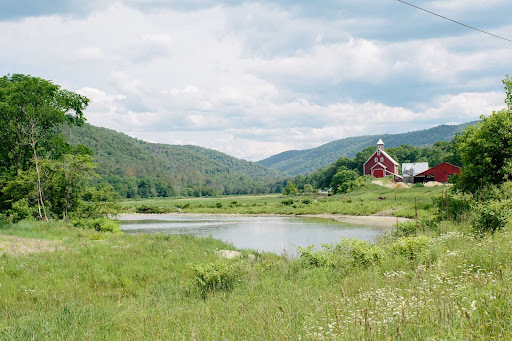
Vermont's first green agritourism enterprise, Liberty Hill Farm , a family-run dairy farm in the picturesque town of Rochester, has been welcoming tourists for nearly 40 years, many of whom return many times over to milk cows, bottle-feed calves, and go hiking in Green Mountain National Forest. The hearty breakfast of farm-fresh eggs and cheese, as well as a home-cooked dinner keep agritourists properly fueled. After a day filled with outdoor activities, guests can watch the sunset from a rocking chair on the porch and catch some quality zzzs in a cozy room inside the 1825-built Greek Revival main house.
2. Beach Plum Farm (Cape May, New Jersey)
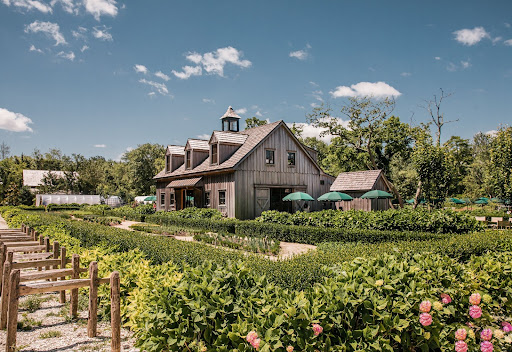
Drive two miles west of historic downtown Cape May and you’ll find Beach Plum Farm . To reap grounding benefits of fostering a deeper connection to nature and farm life, chores here include feeding animals, collecting eggs, planting, and harvesting. There are interactive classes on topics such as beekeeping and flower-arranging in season. The property is also well known for farm-to-table dinners. Besides hands-on educational experiences, enjoying the fresh air, and eating delicious food, guests have the opportunity to snooze soundly in cottages and hemlock beam barns.
3. Babylonstoren (Simondium, South Africa)
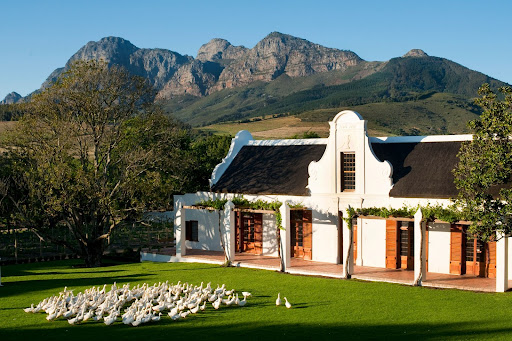
One of the oldest Cape Dutch farms in South Africa, Babylonstoren has a huge garden with vegetables, stone fruits, citrus, herbs, and even a prickly pear maze. Gardener-led walking tours to see the plants, bees, ducks, and chickens are available.
Babel, an old cowshed turned farm-to-fork restaurant, boasts one of the best and most bountiful breakfast spreads ever. Expect house-made granola, wood-fired country bread, hand-churned butter, pressed juices, and hyperlocal honey. Guests can hunker down in cottages with fireplaces and clawfoot tubs. Bathrooms here are stocked with hand-picked aromatherapy herbs. And nature-driven spa treatments round out the wellness offerings.
4. Southall (Franklin, Tennessee)
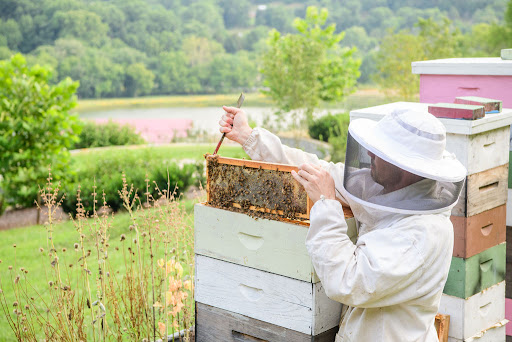
For travelers who crave a little luxury, Southall is an upscale farm resort not too far outside of Nashville worth checking out. The picturesque property offers gardens, greenhouses, a lake, apiaries, forest trails, and refined accommodations that make it an extremely relaxing atmosphere for stressed-out city dwellers to learn about and reconnect with nature. The farm-to-table experience ranks among the highlights for foodies keen to understand the journey from ground to plate—and then taste the proverbial fruits of their labors, as prepared by a talented chef. Many folks also gravitate toward pollinator programming that includes bee-hive tours and honey tastings.
5. Beltane Ranch (Glen Ellen, California)
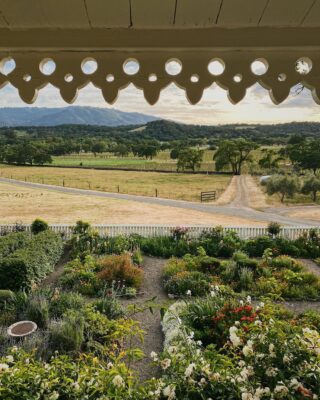
Sonoma continues to lead the regenerative agriculture charge in the United States. Beltane Ranch , a sixth-generation operation in Glen Ellen, stands at the forefront of the movement. Efforts—which go well beyond sustainably to restorative practices that will benefit the land for generations—include using free-range chickens for pest control, composting initiatives, maintaining wildlife corridors, planting cover crops, and employing sheep (aka “woolly weeders”) to promote soil fertility. Besides the applaud-worthy ecological endeavors, this 105-acre agricultural preserve is a wonderful place to unwind under the shade of ancient oaks, stroll through the vineyards and heirloom gardens, sip estate-grown wine, sample olive oil, and rest in a landmark inn.

6. São Lourenço do Barrocal (Alentejo, Portugal)
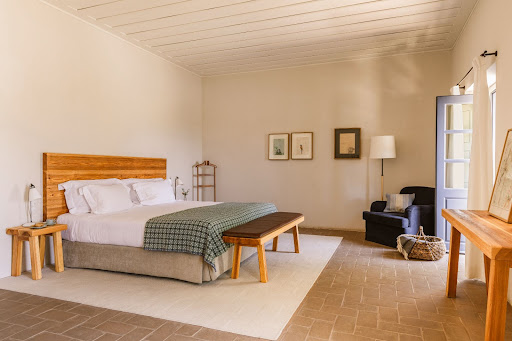
Another plush yet pastoral choice, São Lourenço do Barroca is a family-operated agritourism that dates back more than 200 years. The sprawling plot comprises a 19th-century farmhouse, spa, stables, scenic trails, a winery, an organic garden, and a farm-to-table restaurant that sources vegetables, fruits, and olive oil grown and produced right on-site. Guests have the opportunity to participate in a spate of activities, such as horseback riding, cycling, bird-watching, and stargazing (the estate sits within the Alqueva Dark Sky Reserve ). Overnight options include rooms, suites, and cottages—all refurbished, but still true to traditional craftsmanship with elements like terracotta floors.
7. Tabula Rasa Farms (Carlton, Oregon)
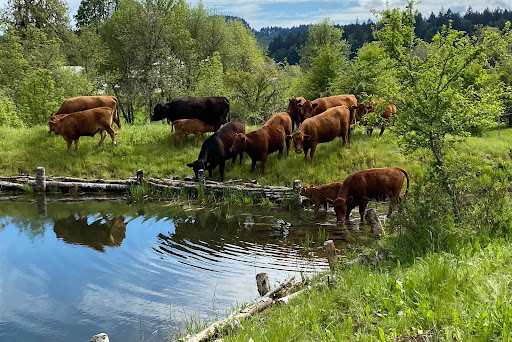
Situated in the heart of the Willamette Valley, Tabula Rasa Farms is rooted in sustainability and respect for the land and its creatures. It’s well regarded for humane, grass-fed beef, heritage-breed pork, and pasture-raised laying hens. The plant-based set will find plenty to satisfy thanks to the regenerative approach to agriculture that yields fresh, flavorful vegetables. Farms tours to meet all animals, learn about rotational grazing, and witness water conservation efforts first-hand are a huge hit. For overnight guests, there’s a hilltop farmhouse with sweeping vistas and a fitness center.
8. EBBIO (Tuscany, Italy)

EBBIO , an organic and sustainable farmhouse surrounded by an evergreen forest in Tuscany, is beloved among visitors who love foraging for wild asparagus and edible flowers. Truffle hunts lure travelers between September and November. With essential-oil making, cooking classes, jam workshops, art therapy, horseback riding, and farm chores like feeding chickens, the enriching on-site activities never seem to end. The ecologically oriented estate also hosts yoga retreats.
9. Mountain Goat Lodge (Salida, Colorado)
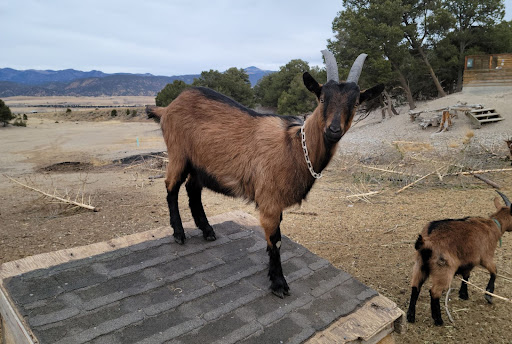
Tucked away on 20 acres at the foot of the Sawatch Mountain Range in the high desert of Colorado, Mountain Goat Lodge invites visitors to interact with dairy goats (and even bottle-feed kids). More than just simply looking adorable and bringing a smile to guests’ faces, these cute critters supply milk for housemade Greek-style yogurt, chevre, fresh mozzarella, feta, and paneer—all of which is up for grabs at breakfast. The cheese-making workshops are wildly popular. Guests can also learn new skills to bring back home by taking classes on raising backyard chickens and goat husbandry. When it’s time to call it a night, cozy rooms and suites await.
10. Cucumbi Farm (Alentejo, Portugal)
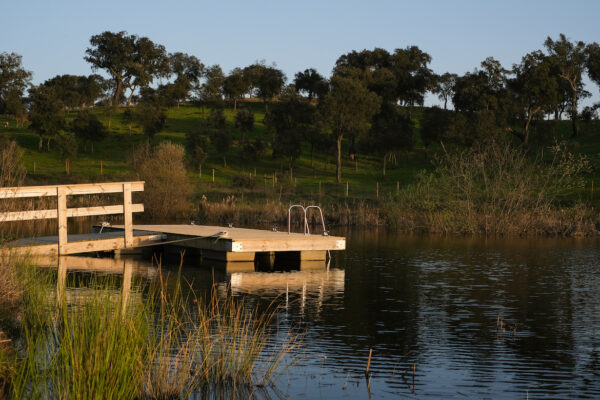
A soulful reflection of the agrarian roots and spirit of Alentejo, every aspect of Cucumbi Farm ties to the untouched region it calls home. It’s rustic and relaxing, with an emphasis on returning to simplicity. There are expansive fields to explore, crops to harvest, sheep and chickens to feed, and a saltwater pool to cool off in between chores and strolling the enchanting grounds. While the whitewashed apartments and suites—which don’t have TVs in order to help guests fully embrace the slower pace and unplugged nature of things—are all named after animals that reside on the herdade.
Loading More Posts...
The Beach Is My Happy Place—and Here Are 3 Science-Backed Reasons It Should Be Yours, Too
Your official excuse to add "OOD" (ahem, out of doors) to your cal.
4 Mistakes That Are Causing You to Waste Money on Skin-Care Serums, According to an Esthetician
These Are the Best Anti-Chafing Denim Shorts—According to Some Very Happy Reviewers
{{ successMessage }}
Please wait a moment...
What I Learned from My Farm-Stay Experience
Ellie Coggins is the art director and photo editor for…
Armed with a bucket of grain and a shepherd’s staff, Jason Connelly marched across the pasture on the Weathered Hill Farm in South Kortright, N.Y. as a herd of sheep chased after him. The smell of fresh grass and manure filled the warm air. Jason’s dad revved up the four-wheeler. His grandpa stayed with the truck to try to block off escape routes up ahead. Meanwhile, I held up the back, jogging to try to keep an old, stubborn sheep and inexperienced lambs from lagging too far from the group. Our goal: Move the hungry herd from the grazed-over pasture to fresh, tall grass that would serve as their next meal.
“It’s like a well-choreographed ballet,” Bob Connelly, Jason’s dad, says.
Jason chimed in, warning that I might hear “a few choice words” from the three generations as they maneuvered around 100 sheep. “It’ll either go really well or really badly,” Jason adds.
We and the sheep approached a fork in the road: One side led to the path toward tall, fresh grass for grazing and the other led to the field that contained my car and tent, my digs for this farm-stay experience. They headed for my tent. I raced to stand in front, trying to keep them away from destroying my tent and going in the right direction. But like a bull through a matador’s cape, they dodged both, escaping through the gap between my red tent and a rusty, red truck. Their diversionary tactic and the adrenaline it sparked erased all concern about keeping my boots clean or my stuff safe. I scrambled to the back of the group, shrieking and waving my arms, forcing them closer to Jason. One sheep got the message. As the one attentive or obedient (hard to know which) sheep began to follow Jason again, the others fell into suit. As I watched them amble toward their new pasture, I belted out laughing, flooded with relief that they had their next meal, and I had my tent.
But I began to doubt I qualified as farming material. The previous day, as I drove my red Buick Encore through the winding roads of the Catskills and watched my phone dip in and out of cellphone service, I wasn’t sure what to expect from my farm-stay experience. As I looked through listings on various sites — Airbnb, Farm Stay USA, Hipcamp, and more — it dawned on me that more people want to get a taste of what the homesteading life has to offer through the safety of a temporary vacation. What might’ve started with “ WWOOFing ” or living and working on organic farms has prompted similar experiences today on vacation sites, possibly prompted by our growing collective interest in knowing where our food comes from. Jason and his family have hosted around 40 people in their two years of opening up their farm, both to make some extra money and share their passion for their lifestyle. I’ve always loved exploring new places as my well-worn hiking boots suggest, and as someone who has never farmed before but cares about knowing where their food comes from, the idea of disconnecting from regular life and learning some new skills interested me. I found the Connelly family’s listing online and decided to venture to South Kortright to see if homesteading offered something I wanted to pursue.
It’s like a well-choreographed ballet
A large red barn against a backdrop of gray sky served as my visual signpost for Weathered Hill Farm. When I arrived, Jason greeted me with a smile and put down his wheelbarrow to shake my hand. I felt a bit like an imposter as I stood next to him in my freshly-washed skinny jeans and hiking boots. He wore muddied rubber boots, dirt-crusted denim pants, and a warm demeanor. His friendliness made me feel welcome enough to ask any questions and try my hand at skills new to me. I met his wife Sarah when she returned from work at a pharmaceutical company and their children Clara and Otto, who are four and almost two, respectively. First-generation sheep farmers, Sarah and Jason are young and fit. They always knew they wanted to have livestock, although they originally wanted to go into dairy or beef. When they found out that one of Jason’s customers was selling sheep, they decided their farm was better suited for sheep anyways. While they admit the work is physically exhausting, they’re content, especially as they observe their children’s joy of wandering the barn to fill their plastic pails with fresh eggs. Their barn and land are home to a whole menagerie: Dogs, horses, a pig, chickens, and of course, their many sheep.
It’s why Jason and Sarah named their online Hipcamp listing “Counting Sheep,” the playful name that caught my attention when I first scanned through farm-stay experiences online. After seeing the sea of wool in person, I understood why they chose it. Even Jason never knows exactly how many sheep there are off the top of his head.
Upon arriving at Weathered Hill, the physical routine of sheep farming quickly replaced the serenity of the surrounding landscape. Jason led me out to the sheep’s pastures, where we would set up new fencing. The trees that bordered the pasture blocked the rest of the farm from view, making this piece of the property feel like the sheep’s own private area. When I saw the pasture, it was clear why the sheep needed to be moved. Within the fencing, the grass was grazed almost to the dirt while the surrounding fields flourished with thigh-high grass that waved when the wind blew across it.
After only one afternoon of work — taking the sheep’s moveable fencing down, carrying it over my shoulder to the next plot of land, and reassembling it — I fell asleep to aching muscles unaccustomed to physical labor. Rain pelted the tent during the night, creating a dense, moist start to the day and making it difficult to get up the next morning. I pulled on my dirty jeans and boots and returned to work. It also amazed me that Jason, who moved the fencing with ease and seemed to have this innate understanding of the sheep’s feelings, didn’t come from a background of sheep farming. Even his dad, the guy who manned the four-wheeler during our sheep-migration mission, lacks sheep history or credentials. He’s a full-time ophthalmologist. Same with Jason’s grandpa, who began helping the young couple out with the sheep when they moved to Weathered Hill in 2012 and began their operation.
Outside of the sheep farm, Jason works as a hoof-trimmer, and he let me join him the next day at the Hager Farm, where he would be trimming dairy cows’ hooves. After a 10-minute drive on County Highway 33, we pulled left and onto the Hager’s property and toward their sprawling blue barn. Each Hager welcomed me to their farm, and I learned that three generations of Hagers run their operation of nearly 500 cows — from milking to feeding and raising calves.
Adam Hager, part of the farm’s third generation, is working to eventually take over the farm from his father. Walking through the various barns, I struggled to imagine a life like this for myself, working with my family every day and being surrounded by the strong smell of manure. But I enjoyed witnessing the love each Hager possessed for the animals. Henry Hager, Adam’s dad, named each one of the cows himself, and if given a description of a particular heifer, can pinpoint her, along with her mother or calves.
“I’ve been doing this for almost 30 years and can’t quite do that,” Adam tells me with a laugh, as he persuaded Tina, a stubborn white heifer with large black patches, to get in line for milking.
While on a self-guided tour of the various barns, I ran into Bethany Hager, Adam’s wife. Bethany married into the Hager family and doesn’t come from a background of farming, but she said that she fell in love with it after her post-college return to Central New York. “I’ve met an amazing group of people who love their animals like family,” Bethany says. I smiled as I watched her daughter Lucy, almost two years old, walk around the farm and pointed to each of “her cows” with fondness.
But Bethany admits it wasn’t always easy adjusting to her new life, adding that farming is a 24/7 job. Once, when she, Adam, and their children returned home from a family trip, the rest of the family called them to help find some escaped cows. Bethany’s honesty about the farming life, the challenges it presented, and her occasional reticence relieved the guilt I felt for the constant drip of thoughts in my head that told me I lacked the ability and the disposition to thrive on a farm despite how much I love the outdoors, nature, and animals.
The next morning, outside my tent, I put on my muddied boots to return home and began to review the highlight reel of experiences in my head of the last two days: Traipsing across old-fashioned barns, stepping in cow dung at a dairy farm, sprinting to herd sheep back to their pastures, and even trudging through a field to use a compost toilet. I began this experience wondering if a farming lifestyle was for me. Leaving, I know it’s not. At least not right now. But the Connelly’s, who found their love for farming life even though they lacked any experience and at a range of ages, demonstrated to me the possibility of arriving at that passion down the road. But as I load up my Buick, head out on Doroski Road, and grab one last look at that red barn in the rearview mirror, I still smell the manure and the mud and think to myself, “I really need to get my car detailed when I get home.”
Ellie Coggins is the art director and photo editor for Rooted . She received her master’s degree in the Magazine, Newspaper and Online Journalism program at the S.I. Newhouse School of Public Communications at Syracuse University and her bachelor’s degree in English literary and cultural studies from the University of Cincinnati. She is passionate about health and environmental topics and hopes to continue telling stories relating to them in the future.
© 2019 ROOTED MAGAZINE. ALL RIGHTS RESERVED.

COMMENTS
If it's on Farmstay, you can expect the real thing – tractors and all. Dig deeper with us into stories of the farmers who feed us, environmental stewardship, agricultural experiences, camping adventures, unique accommodations, farm-to-table fun, and everything Farmstay.
There are now 1,885-plus locations in the lower 48, Canada, Alaska and Baja California that belong to a network of wineries, breweries, distilleries and farms called Harvest Hosts that invites road trippers to stay at their on-farm camping sites. The popular website Hipcamp has 491,510 rural campsites across the country, many of them on farms.
Farm stay. A farm stay (or farmstay) is any type of accommodation on a working farm. Some farm stays may be interactive. Some are family-focused and offer children opportunities to feed animals, collect eggs and learn how a farm functions. Others do not allow children.
A new form of lodging dubbed a “ Farm Stay ” marries the concepts of alternative lodging and agritourism. Farm Stays are farms and ranches that are open to the public for lodging and, in some cases, voluntary labor. Airbnb is a favorite site of travelers looking to avoid traditional hotel lodging, however there are lots of alternative sites ...
ning Your Farm StayConsider what will set your farm stay apart and leave a lasting impression on your customers, and also what you can manage. s a working farmer. Focus on five elemen. n Creating an enjoyable guest experience. n Managing your own time and human resources. n Administering the daily operations.
Costs will depend upon your location and what you want to do. Some numbers could be much lower, some much higher. Pick and choose for a rough estimate. Lodging. $500-$5,000. Campsites spaces with water, toilets, cooking area. $1,000-$10,000.
This is why you would want to stay on a farm. It’s a bridge to the country. It’s a boon to the farm (it saved ours). It’s fun and unexpected, and your friends will think you are crazy, until you return home with tales of feeding a baby goat, and then they will want to go too. You’ll be protecting small-farm America that at one point ...
Overall, I am looking forward to the farm stay and I can’t wait for all of the learning we will get to do. I am so excited to see what farm stays are like and what maple syrup is like. Posted by
Agritourism Is the Concept of Vacationing on a Farm—Try It Out at These 10 Pastoral Properties. Agritourism is a portmanteau of agriculture and tourism. The concept, affiliated with ecotourism ...
Jason Connelly, a first-generation sheep farmer, secures the fencing around a new pasture for about 100 sheep. To keep predators out, a portable generator charges the fence with electricity. Photo by Elizabeth White. Adam Hager, part of the farm’s third generation, is working to eventually take over the farm from his father.